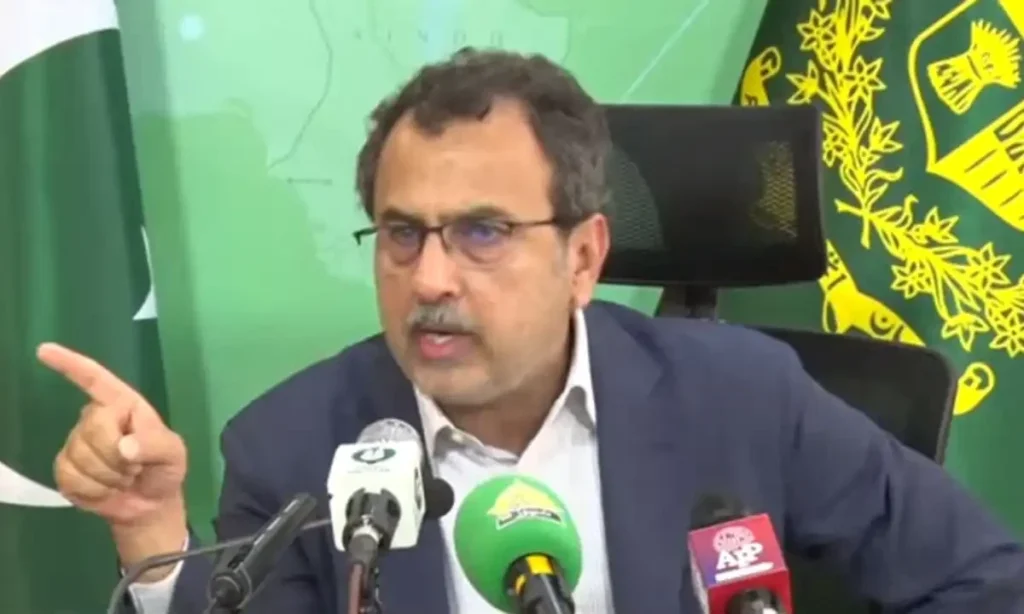Islamabad: Pakistan Minster for Water and Power has said that India is trying to initiate a Water warfare, which is a cowardly and illegal move.
Minister for Power Awais Leghari statement on Indian Illegal Act,
“India’s reckless suspension of the Indus Waters Treaty is an act of water warfare; a cowardly, illegal move. Every drop is ours by right, and we will defend it with full force — legally, politically, and globally.”
His statement came at the occasion when both states are at logger head and India has announced some unilateral actions after an attack on tourists in Indian Occupied Kashmir.
Earlier in the day, Pakistan’s foreign ministry offered condolences over the loss of tourist lives.
“We are concerned at the loss of tourists’ lives in an attack in Anantnag district of Indian Illegally Occupied Jammu and Kashmir. We extend our condolences to the near ones of the deceased and wish the injured a speedy recovery,” the Foreign Office said in a statement.
In a recent attack on Indian tourists in Kashmir, militants targeted a group of visitors, resulting in multiple casualties and injuries.
Pakistan Foreign Office immediately condemned the attack in Kashmir.
The attack occurred amidst heightened tensions in the region, which has been a longstanding point of dispute between India and Pakistan.
The violence has further fueled animosity, with Kashmir’s security situation deteriorating.
Pakistan immediately condemned the attack, and asked for the proof when India blamed Pakistan for orchestrating the assault, despite Islamabad’s denials.
In response, India has intensified its rhetoric against Pakistan, accusing it of fostering terrorism and undermining peace efforts in the region.
India has asked all Pakistanis in India to leave immediately and their visas are suspended. Military attaché are also asked to leave India. No more visas for Pakistani citizens.
Indian Announcement of IWT
India has recently escalated tensions with Pakistan by suspending the Indus Water Treaty (IWT), a pivotal agreement signed in 1960 that governs the distribution of the Indus River’s water between the two countries.
The suspension of the Indus Water Treaty marks a significant shift in the already strained bilateral relationship.
It exacerbates the ongoing water scarcity crisis in Pakistan and further complicates efforts for peace and dialogue between the two nuclear-armed neighbors.
The situation calls for urgent international mediation to restore peace and ensure equitable resource sharing.
The suspension, part of a broader set of punitive measures, follows a series of political and military developments, particularly after the Pulwama attack and the subsequent military standoff between India and Pakistan in 2019.
India’s decision to halt the treaty has profound implications, as the Indus River system is vital for Pakistan’s water supply, especially for its agriculture and daily consumption.
Indus Water Treaty
The Indus Water Treaty allocates the water of the Indus River and its tributaries, with Pakistan receiving the bulk of the water.
India has the rights to water from the Beas, Ravi, and Sutlej rivers, while Pakistan controls the rights to the Indus, Jhelum, and Chenab rivers.
India’s move to suspend the treaty threatens Pakistan’s water security, given the strategic importance of these rivers, which irrigate over 80% of the country’s agricultural land.
In addition to this, India has announced a series of economic and diplomatic actions against Pakistan, including restricting trade, cutting down on diplomatic ties, and halting bilateral agreements on various fronts.
